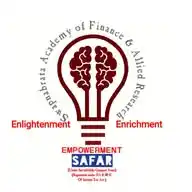
SB Dash - SAFAR
May 19, 2025 at 12:15 AM
*LANDMARK DECISION ON GST BY SC*
*Proceeding name: CENTRAL BOARD OF INDIRECT TAXES AND CUSTOMS Vs M/s ABERDARE TECHNOLOGIES PRIVATE LIMITED & ORS.
Ruling date: 21st March 2025*
*Supreme Court says software limitations cannot be a good justification to deny right to do business*
In a recent ruling, the Supreme Court has ruled that the businesses can rectify GST(Goods and Services Tax) returns even after prescribed due dates observing that human mistakes are normal.
It has dismissed the petition filed by the Central Board of Indirect Taxes and Customs ( CBIC ). An SLP was filed by the CBIC.
In the case , a Maharashtra GST registered seller quoted in his GSTR-1, the GST number of the buyer’s Delhi office when in reality the goods were supplied to the buyer’s Uttarakhand factory which had a different GST number.
This resulted in the buyer facing the issue of loss of his input tax credit (ITC).
By the time the seller realised this mistake, the time limit to revise his GSTR-1 return for March 2023 tax period was over.
The buyer who was unaware about this mistake, claimed his input tax credit (ITC) and filed the GSTR-3B return for March 2023 based on the figures auto-populated from the seller’s faulty GSTR-1 return.
Since the amount in question was more than Rs 14 lakh, the buyer told it will deduct this amount from money payable to the seller. So, this is how it created a ripple effect for the seller, as denial of this much money meant significant business losses.
To be fair, the buyer also had no choice as denial of ITC would mean he suffers loss in his own business.
Hence the reason why the seller fought till the end starting from the GST Joint Commissioner, to Bombay High Court and ultimately to the Supreme Court of India.
Supreme Court says software limitations cannot be a good justification to deny right to do business
According to the order of Supreme Court of India dated March 21, 2025, here are the details:
The petitioner, Central Board of Indirect Taxes and Customs, must re-examine the provisions/timelines fixed for correcting the bonafide errors.
Time lines should be realistic as lapse/defect invariably is realized when input tax credit is denied to the purchaser when benefit of tax paid is denied.
The purchaser is not at fault, having paid the tax amount. He suffers because he is denied the benefit of tax paid by him. Consequently, he has to make double payment.
Human errors and mistakes are normal, and errors are also made by the Revenue.
*The right to correct mistakes in the nature of clerical or arithmetical error is a right that flows from the right to do business and should not be denied* unless there is a good justification and reason to deny benefit of correction.
Software limitation itself cannot be a good justification, as software are meant to ease compliance and can be configured.
Therefore, we exercise our discretion and dismiss the special leave petition.
“We are not inclined to interfere with the impugned judgment which is, in fact, just and fair, as there is no loss of revenue. Hence, the present special leave petition is dismissed,” said the Supreme Court.